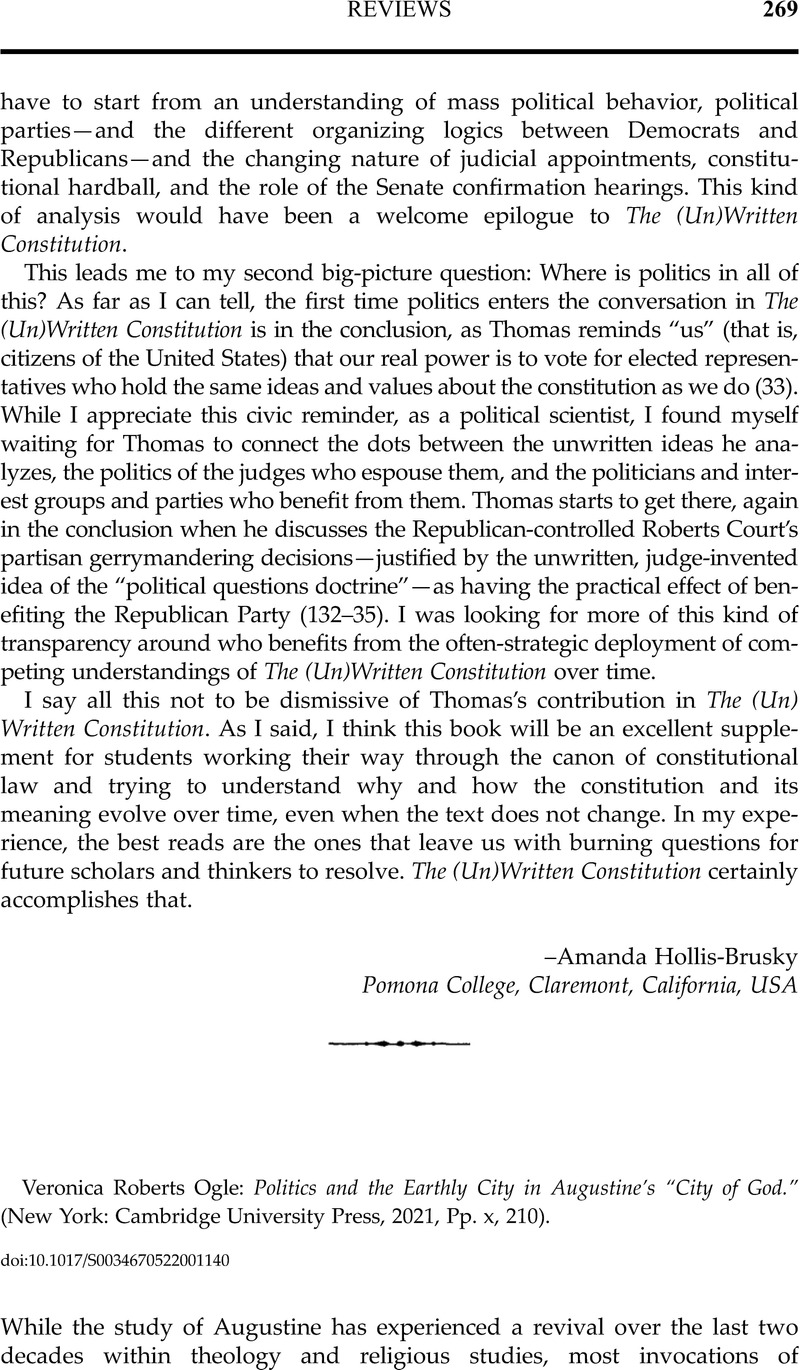No CrossRef data available.
Article contents
Veronica Roberts Ogle: Politics and the Earthly City in Augustine's “City of God.” (New York: Cambridge University Press, 2021, Pp. x, 210).
Review products
Published online by Cambridge University Press: 11 January 2023
Abstract

- Type
- Book Review
- Information
- Copyright
- Copyright © The Author(s), 2023. Published by Cambridge University Press on behalf of University of Notre Dame


